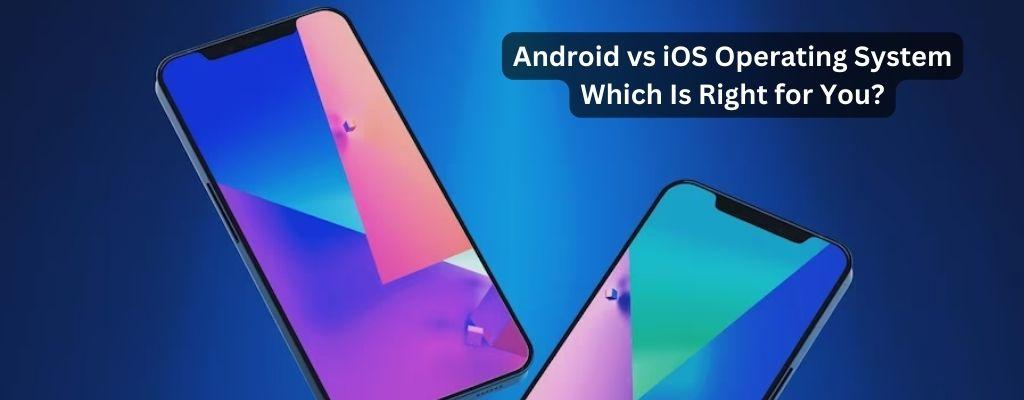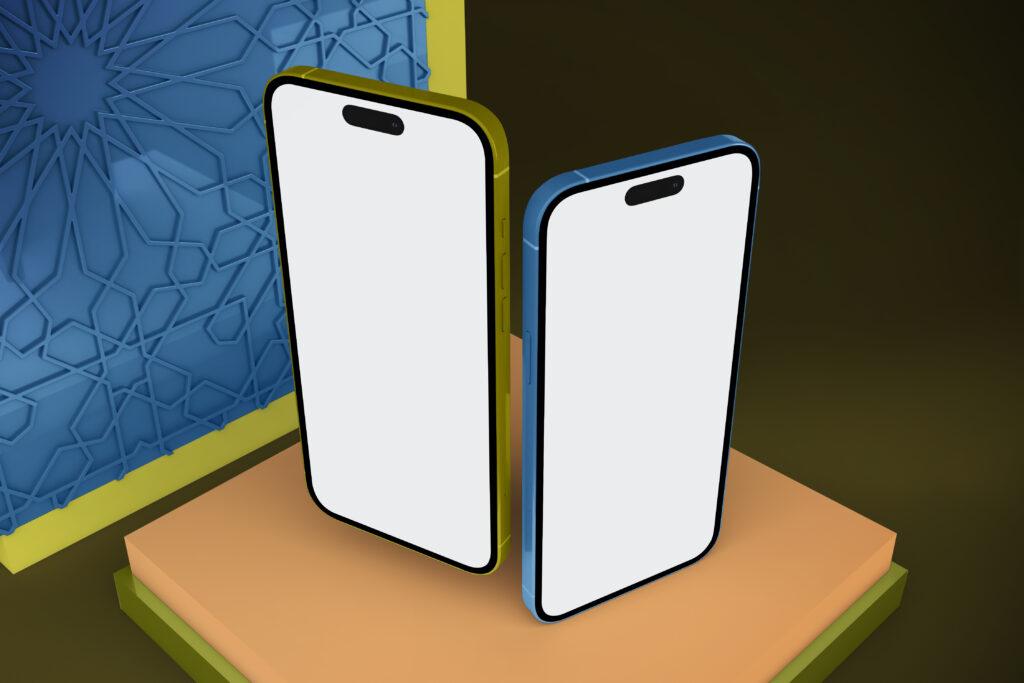
The Android vs iOS operating systems are two prominent platforms that power mobile devices. The age-old debate between Android and iOS, the two giants of the mobile operating system world, has been raging on for years. Each of these platforms has its own loyal following, with users often fiercely defending their chosen operating system. But what are the key differences between Android and iOS, and which one is right for you? In this comprehensive guide, we will compare and contrast these two dominant mobile operating systems, helping you make an informed decision based on your needs, preferences, and priorities.
Table of Contents
Toggle1. Market Share and Device Diversity
Android
Android is the world’s most widely used mobile operating system, powering billions of devices worldwide. Its open-source nature has led to a vast array of manufacturers adopting it, resulting in a diverse range of Android devices. From budget-friendly smartphones to premium flagships, there’s an Android device for every budget and preference.
iOS
iOS, developed exclusively by Apple, is limited to Apple devices, including the iPhone, iPad, and iPod Touch. While iOS devices offer a cohesive and controlled ecosystem, they come with a higher price tag compared to many Android alternatives. iOS enjoys a significant share of the market but is less diverse in terms of device options.
Winner: Android, for its wider range of device options to suit different budgets and preferences.
2. User Interface and Customization
Android
Android offers a high degree of customization. Users can personalize their home screens, choose from various launchers, and even install custom ROMs to completely change the look and feel of their devices. Widgets, a feature available on Android, allow users to access information and perform actions directly from the home screen.
iOS
iOS, on the other hand, is known for its clean and intuitive interface. While it offers some degree of customization, it’s more limited compared to Android. iOS doesn’t support widgets on the home screen, but it does allow users to organize apps into folders and create custom app arrangements.
Winner: Android, for its extensive customization options and support for widgets.
3. App Ecosystem and Availability
Android
The Google Play Store, Android’s app marketplace, boasts a vast selection of apps, including both free and paid options. The open nature of the platform allows developers to publish apps with relative ease. While this diversity is a strength, it can also lead to occasional issues with app quality and security.
iOS
The Apple App Store is known for its strict quality control standards, resulting in a generally more polished and secure app ecosystem. iOS often gets exclusive app releases first, and it’s considered a lucrative platform for developers. However, the App Store does come with more stringent guidelines and a longer review process.
Winner: It’s a tie, as the choice between Android’s variety and iOS’s quality depends on your priorities.
4. Hardware and Performance
Android
Android devices come in a wide range of hardware configurations, which can lead to varying levels of performance. While flagship Android devices offer top-of-the-line specifications and performance, budget devices may struggle with resource-intensive tasks.
iOS
Apple controls both the hardware and software aspects of its devices, resulting in a tightly integrated ecosystem. iOS devices, especially the latest iPhone models, consistently deliver top-notch performance and are known for their speed and responsiveness.
Winner: iOS, for its optimized hardware and software integration leading to consistently high performance.
5. Updates and Software Support (Android vs iOS operating system)
Android
Android updates are typically rolled out by Google, but the timeline for updates can vary depending on the manufacturer and carrier. This fragmentation can lead to delayed or even non-existent updates for some Android devices. Google offers security updates for three years and platform updates for two years for its Pixel devices.
iOS
Apple is known for providing timely and long-term software support for its devices. iOS updates are generally available to a wide range of older devices, ensuring that users receive the latest features and security patches for several years. This level of support is unmatched in the industry.
Winner: iOS, for its consistent and long-term software support.
6. Privacy and Security
Android
Android offers a range of privacy settings and controls, allowing users to customize their level of data sharing with apps and services. However, the open nature of the platform can make it susceptible to malware and security vulnerabilities, especially on devices without regular updates.
iOS
iOS is renowned for its robust security features and commitment to user privacy. Apple emphasizes data encryption, app sandboxing, and strict app review processes. While no system is completely immune to threats, iOS is often considered more secure.
Winner: iOS, for its strong focus on user privacy and security.
7. Ecosystem and Integration
Android
Android offers integration with Google’s ecosystem, including Gmail, Google Drive, and Google Photos. This ecosystem provides seamless syncing of data across devices and platforms. However, it’s worth noting that Android is more flexible when it comes to integrating third-party services.
iOS
iOS boasts tight integration with Apple’s ecosystem, including iCloud, iMessage, and the Apple Watch. This results in a seamless experience for users who are deeply entrenched in the Apple ecosystem. However, it can be less accommodating when it comes to third-party services.
Winner: It depends on your existing ecosystem and preferences. Android is more open to third-party services, while iOS offers a cohesive Apple-centric experience.
8. Voice Assistants
Android
Android devices typically come with Google Assistant, which is known for its powerful voice recognition and integration with Google services.
iOS
iOS devices feature Siri, Apple’s voice assistant. While Siri has improved over the years, it still lags behind Google Assistant in terms of capabilities and natural language understanding.
Winner: Android, for the superior performance of Google Assistant.
9. Price Range
Android
Android devices are available in a wide price range, from budget-friendly options to premium flagship models. This diversity allows users to find a device that fits their budget.
iOS
iOS devices, particularly iPhones, tend to be more expensive compared to many Android alternatives. While Apple offers older models at lower price points, new flagship iPhones come with premium price tags.
Winner: Android, for its affordability and wide range of price options.
10. Cross-Platform Compatibility
Android
Android devices are generally more flexible when it comes to cross-platform compatibility. You can connect your Android device to various operating systems and devices without significant limitations.
iOS
iOS devices are known for their seamless integration within the Apple ecosystem. While they can work with other platforms, the experience may not be as fluid.
Winner: Android, for its broader cross-platform compatibility.
11. Gaming
Android
Android is a versatile gaming platform with a wide selection of games available on the Google Play Store. It’s particularly appealing to mobile gamers who prefer customization and options.
iOS
iOS is also a strong gaming platform, known for its premium game titles and optimized gaming experiences. The Apple Arcade subscription service offers access to exclusive games.
Winner: It depends on your gaming preferences. Android offers customization and variety, while iOS provides premium gaming experiences.
12. App Development and Monetization
Android
Developing and publishing apps on the Google Play Store is relatively straightforward, and Google offers various monetization options for developers. This openness can sometimes lead to issues with app quality and security.
iOS
Developing apps for iOS requires adhering to strict guidelines and standards set by Apple. While this can be more restrictive, it often results in a higher level of app quality and security. Apple also offers various monetization options for developers.
Winner: iOS, for its rigorous app review process and focus on quality.
Conclusion
The choice between Android vs iOS operating system ultimately comes down to your individual preferences, priorities, and needs. Android offers a wider range of device options, extensive customization, and affordability, making it an excellent choice for those who value diversity and flexibility. On the other hand, iOS excels in terms of security, software support, and hardware performance, making it an ideal choice for users seeking a cohesive and polished ecosystem.
Consider your budget, existing ecosystem, desire for customization, and preferences for user interface and app quality when making your decision. Whichever operating system you choose, both Android and iOS have their strengths, and both can provide a fulfilling and satisfying mobile experience. Ultimately, the right choice is the one that aligns with your specific requirements and enhances your daily life.

